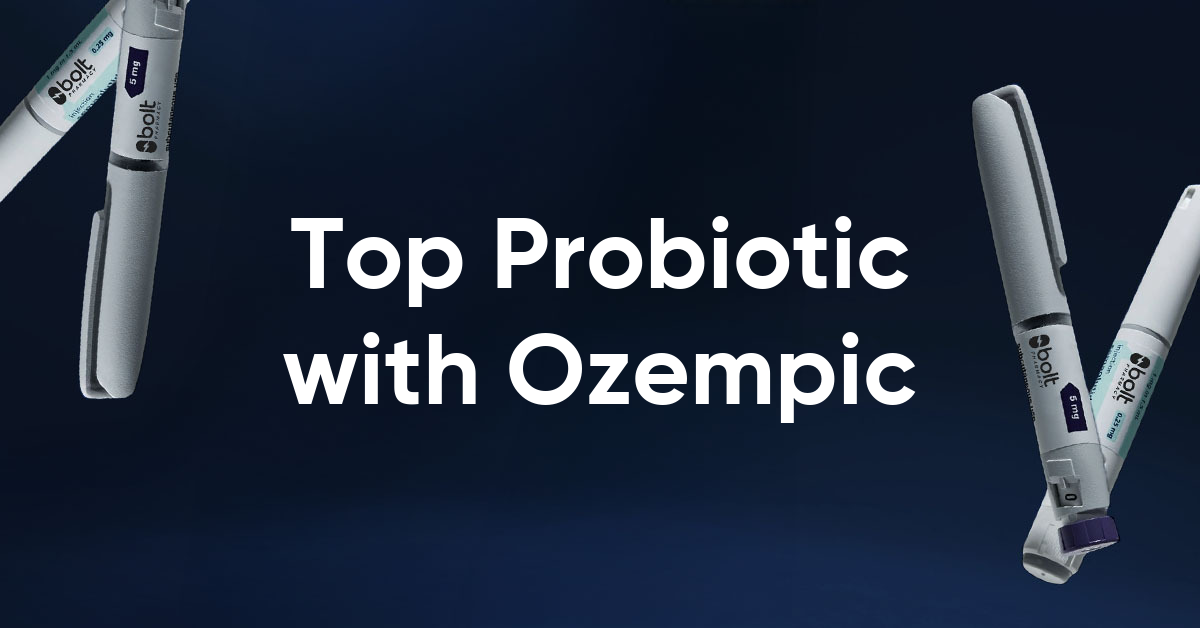Many individuals prescribed Wegovy for weight management wonder whether they can safely continue taking creatine supplements alongside their medication. There is no official contraindication or documented interaction between creatine and semaglutide, the active ingredient in Wegovy, according to MHRA-approved guidance. These substances work through entirely different mechanisms and do not directly interfere with each other's pharmacological actions. However, practical considerations exist, including Wegovy's effects on appetite, gastric emptying, and hydration status, which may influence how your body responds to creatine supplementation. This article examines the evidence, safety considerations, and when to consult your healthcare provider.
Summary: There is no official contraindication between creatine and Wegovy (semaglutide), and they can generally be taken together safely in healthy individuals.
- Creatine and semaglutide work through different mechanisms with no documented pharmacological interaction.
- Both substances affect hydration: creatine increases muscle water retention whilst Wegovy may cause dehydration through gastrointestinal side effects.
- Creatine supplementation may elevate serum creatinine levels, which does not typically indicate kidney damage in healthy individuals but may complicate interpretation of renal function tests.
- Individuals with pre-existing kidney disease, diabetes, or cardiovascular conditions should consult their GP before combining these substances.
- Adequate hydration is essential when taking both, particularly during episodes of nausea, vomiting, or diarrhoea from Wegovy.
- NICE recommends Wegovy as part of a specialist weight management service for adults with BMI ≥30 kg/m² or ≥27 kg/m² with weight-related comorbidities.
Table of Contents
- Can You Take Creatine While on Wegovy?
- How Wegovy Works and Its Effects on the Body
- Creatine Supplementation: Benefits and Considerations
- Potential Interactions Between Creatine and Wegovy
- Safety Considerations When Combining Supplements with Weight Loss Medication
- When to Consult Your GP or Healthcare Provider
- Scientific References
- Frequently Asked Questions
Can You Take Creatine While on Wegovy?
Many individuals prescribed Wegovy for weight management wonder whether they can safely continue taking creatine supplements alongside their medication. The straightforward answer is that there is no official contraindication or documented interaction between creatine and semaglutide, the active ingredient in Wegovy, according to the MHRA-approved Summary of Product Characteristics (SmPC).
Wegovy is licensed for weight management in adults with a BMI ≥30 kg/m² or ≥27 kg/m² with at least one weight-related comorbidity, and should be used as part of a specialist weight management service as recommended by NICE. These substances work through entirely different mechanisms in the body and do not directly interfere with each other's pharmacological actions.
However, the question extends beyond simple drug interactions. When combining any supplement with prescription medication, particularly one designed for weight management, several practical considerations emerge. Wegovy affects appetite, gastric emptying, and overall nutritional intake, which may influence how your body responds to supplementation. Additionally, Wegovy's gastrointestinal side effects may cause dehydration, while creatine increases intracellular water retention in muscles. It's important to note that while creatine can increase serum creatinine levels, this does not typically indicate kidney damage in healthy individuals.
The decision to take creatine whilst on Wegovy should be individualised, taking into account your specific health status, fitness goals, and any underlying medical conditions. Whilst there is no blanket prohibition against this combination, it is prudent to discuss your supplementation regimen with your GP or prescribing clinician. This is particularly important if you have pre-existing kidney conditions, diabetes, or cardiovascular disease, as these factors may influence the safety profile of combining these substances. Your healthcare provider can assess your individual circumstances and provide tailored advice based on your complete medical history and current treatment plan.
How Wegovy Works and Its Effects on the Body
Wegovy contains semaglutide, a glucagon-like peptide-1 (GLP-1) receptor agonist licensed by the MHRA for chronic weight management in adults with obesity or overweight with weight-related comorbidities. Semaglutide mimics the action of the naturally occurring hormone GLP-1, which is released from the intestine in response to food intake. By binding to GLP-1 receptors in the brain, pancreas, and gastrointestinal tract, Wegovy produces several physiological effects that contribute to weight loss.
The primary mechanism involves appetite suppression through actions on the hypothalamus, the brain region responsible for hunger and satiety signals. Wegovy also slows gastric emptying, meaning food remains in the stomach for longer periods, promoting feelings of fullness and reducing overall caloric intake. This effect attenuates over time and, according to the SmPC, does not have clinically relevant effects on the absorption of most oral medicines, though monitoring may be advised for medications with a narrow therapeutic index. Additionally, semaglutide enhances insulin secretion in a glucose-dependent manner and suppresses inappropriate glucagon release, which helps regulate blood sugar levels.
Common adverse effects of Wegovy predominantly involve the gastrointestinal system and include nausea, vomiting, diarrhoea, constipation, and abdominal discomfort. These effects are typically most pronounced during dose escalation and often diminish over time. The medication may also affect hydration status, particularly if gastrointestinal side effects lead to reduced fluid intake or increased losses. Important safety warnings include monitoring for signs of pancreatitis (severe, persistent abdominal pain, sometimes with vomiting) and gallbladder disease (right upper quadrant pain, jaundice). Caution is also advised in people with diabetic retinopathy due to potential complications from rapid blood glucose improvement.
NICE guidance recommends Wegovy as part of a comprehensive weight management programme that includes dietary modification and increased physical activity. In clinical trials (STEP programme), patients lost an average of 10-15% of their body weight over the treatment period, though individual responses vary considerably. Wegovy is contraindicated during pregnancy and breastfeeding and should be discontinued at least two months before a planned pregnancy. Regular monitoring of weight, metabolic parameters, and tolerability is essential throughout treatment.

Creatine Supplementation: Benefits and Considerations
Creatine is one of the most extensively researched and widely used sports supplements, with a substantial evidence base supporting its efficacy for improving exercise performance and muscle mass. Naturally produced in the liver, kidneys, and pancreas from amino acids, creatine is also obtained through dietary sources, particularly meat and fish. Supplementation increases phosphocreatine stores in skeletal muscle, which serves as a rapid energy reserve during high-intensity, short-duration activities.
The primary benefits of creatine supplementation include enhanced strength and power output, improved performance in repeated bouts of high-intensity exercise, and increased lean muscle mass, as supported by the International Society of Sports Nutrition position stand. These effects make creatine particularly popular among individuals engaged in resistance training or sports requiring explosive movements. Some preliminary research suggests potential benefits for cognitive function, particularly in situations of sleep deprivation or mental fatigue, though this evidence remains less conclusive than the performance benefits.
Creatine supplementation is generally considered safe for healthy individuals when used at recommended doses, typically three to five grams daily following an optional loading phase. The supplement draws water into muscle cells, which can result in modest weight gain of one to two kilograms, primarily from increased intracellular fluid rather than fat. This osmotic effect necessitates adequate hydration during supplementation. Creatine is primarily excreted by the kidneys as creatinine, and whilst supplementation increases creatinine levels, this does not indicate kidney damage in healthy individuals. However, elevated creatinine may complicate the interpretation of kidney function tests, as it may not reflect true renal impairment and should be interpreted in clinical context.
Due to limited evidence, creatine supplementation is generally not recommended during pregnancy or breastfeeding unless specifically advised by a healthcare professional.
Potential Interactions Between Creatine and Wegovy
There is no documented pharmacological interaction between creatine and semaglutide at the molecular level. These substances are metabolised through different pathways and do not compete for the same enzymes or receptors. Creatine is synthesised endogenously and obtained through diet, with supplemental creatine absorbed in the small intestine and transported to tissues via specific creatine transporters. Semaglutide, conversely, is a peptide medication administered subcutaneously that undergoes proteolytic degradation similar to endogenous proteins.
However, indirect interactions warrant consideration. Wegovy's effect on gastric emptying could theoretically influence the absorption kinetics of orally consumed creatine. The SmPC for Wegovy notes that while semaglutide delays gastric emptying, this generally has no clinically relevant effect on the absorption of most oral medicines. As creatine is not a narrow-therapeutic-index drug, significant absorption issues are unlikely, particularly given that creatine's efficacy depends on accumulation in muscle tissue over time rather than acute absorption.
More pertinent is the consideration of hydration status. Both substances affect fluid balance: creatine increases intracellular water retention in muscles, whilst Wegovy's gastrointestinal effects may compromise hydration through reduced fluid intake or increased losses. It is advisable to pause creatine supplementation during episodes of significant vomiting or diarrhoea until properly rehydrated.
The weight changes associated with each substance move in opposite directions, which may be relevant depending on your goals. Wegovy promotes fat loss and overall weight reduction, whilst creatine typically causes modest weight gain from increased muscle water content. For individuals using Wegovy primarily for health reasons related to obesity, the small weight increase from creatine is unlikely to be clinically significant. Some evidence from studies on resistance training during caloric restriction suggests creatine may help preserve lean mass during weight loss, though specific research on creatine with GLP-1 agonist therapy is currently lacking.
Safety Considerations When Combining Supplements with Weight Loss Medication
When combining any dietary supplement with prescription medication, several safety principles apply. Firstly, quality and purity of supplements matter considerably, as the supplement industry is less stringently regulated than pharmaceuticals. In the UK, look for products that carry third-party testing certifications or are registered with organisations such as Informed Sport, which screens for banned substances and contaminants. Poor-quality supplements may contain undeclared ingredients that could genuinely interact with medications or cause adverse effects.
Kidney function monitoring becomes particularly important in certain individuals taking creatine alongside Wegovy. Whilst neither substance typically causes kidney damage in healthy individuals, both require adequate renal function for safe use. Wegovy prescribing information recommends caution in patients with renal impairment, particularly if dehydration occurs from gastrointestinal side effects. If you have any degree of kidney disease or risk factors such as diabetes or hypertension, your GP should assess your renal function before you commence creatine supplementation and monitor it periodically thereafter.
Hydration deserves particular attention when combining these substances. Follow NHS guidance of consuming 6-8 glasses of fluid daily, increasing this during hot weather, exercise, or illness. This becomes especially important if you experience gastrointestinal side effects from Wegovy. If experiencing significant diarrhoea or vomiting, consider oral rehydration solutions rather than water alone to replace electrolytes. Signs of inadequate hydration include dark urine, reduced urine output, dizziness, and persistent fatigue. Conversely, be cautious about excessive water intake without electrolytes, which can lead to hyponatraemia.
Nutritional adequacy is another consideration. Wegovy reduces appetite and food intake, which may inadvertently lead to inadequate protein consumption. If you are taking creatine to support muscle maintenance or growth, ensure your dietary protein intake remains sufficient, typically 1.6 to 2.2 grams per kilogram of body weight daily for those engaged in regular resistance training. Your reduced appetite may make meeting these targets challenging, potentially necessitating strategic meal planning or consultation with a registered dietitian.
When to Consult Your GP or Healthcare Provider
Before commencing creatine supplementation whilst taking Wegovy, schedule a discussion with your GP or the clinician prescribing your weight management medication. This conversation is particularly crucial if you have pre-existing medical conditions including kidney disease, diabetes, liver disease, or cardiovascular conditions. Your healthcare provider can review your recent blood tests, including renal function markers such as estimated glomerular filtration rate (eGFR) and serum creatinine, to establish a baseline before supplementation begins, especially if you have risk factors for kidney disease.
Seek medical advice promptly if you develop any concerning symptoms after starting creatine whilst on Wegovy. These include severe, persistent abdominal pain (with or without vomiting) which could indicate pancreatitis; right upper quadrant pain or jaundice which might suggest gallbladder disease; persistent nausea or vomiting beyond the typical adjustment period for Wegovy; significant changes in urination patterns; unexplained muscle cramps or weakness; swelling of the extremities; or unusual fatigue. For people with diabetic retinopathy, any visual changes warrant urgent review. Whilst these symptoms may not necessarily indicate a serious problem, they warrant professional assessment to rule out complications.
If you have diabetes and are taking insulin or sulfonylureas alongside Wegovy, discuss potential dose adjustments with your healthcare provider to reduce the risk of hypoglycaemia. Additionally, remember that Wegovy is contraindicated during pregnancy and breastfeeding and should be discontinued at least two months before a planned pregnancy.
Regular monitoring becomes advisable when combining supplements with prescription medications. If you continue both creatine and Wegovy long-term, arrange periodic reviews with your GP to assess your overall health status, weight management progress, and any need for blood test monitoring. This is particularly important if your Wegovy dose is being titrated upwards, as higher doses may intensify gastrointestinal effects and potentially impact your ability to maintain adequate hydration and nutrition.
Finally, consult your healthcare provider if your goals or circumstances change. If you are considering intensifying your exercise regimen, planning pregnancy, or developing new health conditions, these factors may influence the appropriateness of continuing either or both substances. Your GP can provide personalised guidance that accounts for your complete clinical picture, ensuring that your supplementation and medication regimen remains safe and aligned with your health objectives.
Scientific References
- Wegovy 0.25 mg, FlexTouch solution for injection in pre-filled pen - Summary of Product Characteristics (SmPC).
- Semaglutide for managing overweight and obesity. Technology appraisal guidance [TA875].
- International Society of Sports Nutrition position stand: safety and efficacy of creatine supplementation in exercise, sport, and medicine.
- GLP-1 medicines for weight loss and diabetes: what you need to know.
Frequently Asked Questions
Does creatine interfere with how Wegovy works?
No, creatine does not interfere with Wegovy's mechanism of action. They are metabolised through different pathways and do not compete for the same enzymes or receptors, meaning there is no direct pharmacological interaction between the two substances.
Should I stop taking creatine if I experience side effects from Wegovy?
If you experience significant vomiting or diarrhoea from Wegovy, it is advisable to pause creatine supplementation until you are properly rehydrated. Maintaining adequate hydration is essential when taking both substances, and gastrointestinal side effects may compromise fluid balance.
Do I need blood tests before taking creatine with Wegovy?
If you have risk factors such as kidney disease, diabetes, or cardiovascular conditions, your GP should assess your renal function before commencing creatine supplementation. Baseline blood tests including eGFR and serum creatinine help establish safe monitoring parameters, particularly when combining supplements with prescription medications.
The health-related content published on this site is based on credible scientific sources and is periodically reviewed to ensure accuracy and relevance. Although we aim to reflect the most current medical knowledge, the material is meant for general education and awareness only.
The information on this site is not a substitute for professional medical advice. For any health concerns, please speak with a qualified medical professional. By using this information, you acknowledge responsibility for any decisions made and understand we are not liable for any consequences that may result.
Heading 1
Heading 2
Heading 3
Heading 4
Heading 5
Heading 6
Lorem ipsum dolor sit amet, consectetur adipiscing elit, sed do eiusmod tempor incididunt ut labore et dolore magna aliqua. Ut enim ad minim veniam, quis nostrud exercitation ullamco laboris nisi ut aliquip ex ea commodo consequat. Duis aute irure dolor in reprehenderit in voluptate velit esse cillum dolore eu fugiat nulla pariatur.
Block quote
Ordered list
- Item 1
- Item 2
- Item 3
Unordered list
- Item A
- Item B
- Item C
Bold text
Emphasis
Superscript
Subscript












